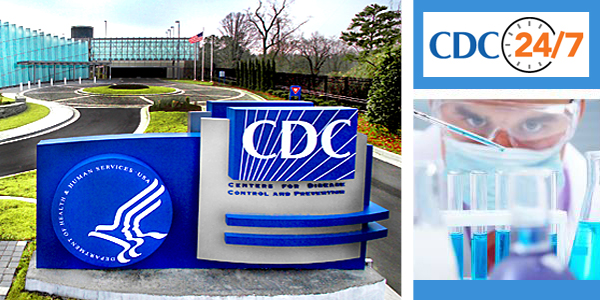CDC Recommends Updated 2024-2025 COVID-19 and Flu Vaccines for Fall/Winter Virus Season

Today, CDC recommended the updated 2024-2025 COVID-19 vaccines and the updated 2024-2025 flu vaccines to protect against severe COVID-19 and flu this fall and winter.
It is safe to receive COVID-19 and flu vaccines at the same visit. Data continue to show the importance of vaccination to protect against severe outcomes of COVID-19 and flu, including hospitalization and death. In 2023, more than 916,300 people were hospitalized due to COVID-19 and more than 75,500 people died from COVID-19. During the 2023-2024 flu season, more than 44,900 people are estimated to have died from flu complications.
Updated 2024-2025 COVID-19 Vaccine Recommendation
CDC recommends everyone ages 6 months and older receive an updated 2024-2025 COVID-19 vaccine to protect against the potentially serious outcomes of COVID-19 this fall and winter whether or not they have ever previously been vaccinated with a COVID-19 vaccine. Updated COVID-19 vaccines will be available from Moderna, Novavax, and Pfizer later this year. This recommendation will take effect as soon as the new vaccines are available.
The virus that causes COVID-19, SARS-CoV-2, is always changing and protection from COVID-19 vaccines declines over time. Receiving an updated 2024-2025 COVID-19 vaccine can restore and enhance protection against the virus variants currently responsible for most infections and hospitalizations in the United States. COVID-19 vaccination also reduces the chance of suffering the effects of Long COVID, which can develop during or following acute infection and last for an extended duration.
Last season, people who received a 2023-2024 COVID-19 vaccine saw greater protection against illness and hospitalization than those who did not receive a 2023-2024 vaccine. To date, hundreds of millions of people have safely received a COVID-19 vaccine under the most intense vaccine safety monitoring in United States history.
Updated 2024-2025 Flu Vaccine Recommendation
CDC recommends everyone 6 months of age and older, with rare exceptions, receive an updated 2024-2025 flu vaccine to reduce the risk of influenza and its potentially serious complications this fall and winter. CDC encourages providers to begin their influenza vaccination planning efforts now and to vaccinate patients as indicated once 2024-2025 influenza vaccines become available.
Most people need only one dose of the flu vaccine each season. While CDC recommends flu vaccination as long as influenza viruses are circulating, September and October remain the best times for most people to get vaccinated. Flu vaccination in July and August is not recommended for most people, but there are several considerations regarding vaccination during those months for specific groups:
- Pregnant people who are in their third trimester can get a flu vaccine in July or August to protect their babies from flu after birth, when they are too young to get vaccinated.
- Children who need two doses of the flu vaccine should get their first dose of vaccine as soon as it becomes available. The second dose should be given at least four weeks after the first.
- Vaccination in July or August can be considered for children who have health care visits during those months if there might not be another opportunity to vaccinate them.
- For adults (especially those 65 years old and older) and pregnant people in the first and second trimester, vaccination in July and August should be avoided unless it won’t be possible to vaccinate in September or October.
Updated 2024-2025 flu vaccines will all be trivalent and will protect against an H1N1, H3N2 and a B/Victoria lineage virus. The composition of this season’s vaccine compared to last has been updated with a new influenza A(H3N2) virus.
For more information on updated COVID-19 vaccines visit: Coronavirus Disease 2019 (COVID-19) | CDC. For more information on updated flu vaccines visit: Seasonal Flu Vaccines | CDC.
The following statement is attributable to CDC Director Dr. Mandy Cohen:
“Our top recommendation for protecting yourself and your loved ones from respiratory illness is to get vaccinated,” said Mandy Cohen, M.D., M.P.H. “Make a plan now for you and your family to get both updated flu and COVID vaccines this fall, ahead of the respiratory virus season.”
